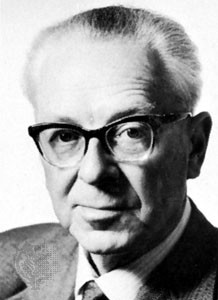

Partner Anthony Butts
Queer Places:
43 Adastra Ave, Hassocks BN6 8DR, UK
 William
Charles Franklyn Plomer CBE (he pronounced the surname as ploomer) (10
December 1903 – 21 September 1973) was a South African and British author,
known as a novelist, poet and literary editor.
William
Charles Franklyn Plomer CBE (he pronounced the surname as ploomer) (10
December 1903 – 21 September 1973) was a South African and British author,
known as a novelist, poet and literary editor.
Self-described as an "Anglo-African-Asian", Plomer was educated mostly in the United Kingdom. He became famous in the Union of South Africa with his first novel, Turbott Wolfe, which had inter-racial love and marriage as a theme. He was co-founder of the short-lived literary magazine Voorslag ("Whiplash") with two other South African rebels, Roy Campbell and Laurens van der Post; it promoted a racially equal South Africa.
He spent the period from October 1926 to March 1929 in Japan, where he was friendly with Sherard Vines. There, according to biographers, he was in a same-sex relationship with a Japanese man. He was never openly gay during his lifetime; at most he alluded to the subject.
The English novelist William Plomer’s wealthy friend Anthony Butts took him to Europe in May 1930. When they reached Berlin a friend of a friend showed them around the gay scene. In his memoir At Home (1958), Plomer would write of pre-Hitlerite Berlin: ‘the then notorious night life was something well worth seeing. Blatant impudicity on such a scale was certainly exciting to youthful senses, but there was something desperately sad about it – and at times something grotesquely funny.’ At times, he found, it was neither sad nor funny. In a club called The Sign of the Cross the floor-show included an enema display that he thought simply disgusting. On one occasion, Plomer and Butts encountered André Gide, ‘apparently taking his pleasures with his usual seriousness’. The travellers moved on to Venice and then Athens, but Plomer would later go back to Berlin in his fiction.
One of the protagonists of Plomer’s 1952 novel Museum Pieces is Toby d’Arfey, a standard (if heterosexual) aesthete in the Anthony Blanche mould, based on Tony Butts. One character says of him, ‘He’s an aesthete, but he’s tough. He has a feminine streak, but the nicest men often have, don’t you think?’ When she first sees him, the narrator, Jane Valance, thinks his face suggests ‘a man who loved pleasure although he saw through it’. What she thinks of as his ‘Feminine ruthlessness’, she comments drily, ‘is not one of the qualities I like in a man’.
He then moved to England and, through his friendship with his publisher Virginia Woolf, entered the London literary circles. He became a literary editor for Faber and Faber, and was a reader and literary adviser to Jonathan Cape, where he edited a number of Ian Fleming's James Bond series. Fleming dedicated Goldfinger to Plomer.[1]
Plomer is known to have used the pseudonym 'Robert Pagan', notably for some of his poetry. He was also active as a librettist, with Gloriana, Curlew River, The Burning Fiery Furnace and The Prodigal Son for Benjamin Britten. He died at his home in Hassocks, West Sussex on 21 September 1973, aged 69.
My published books: